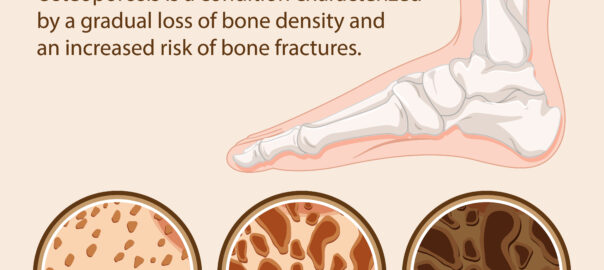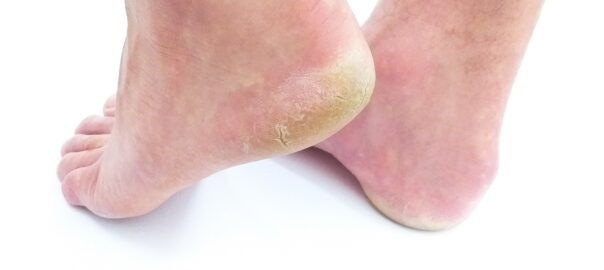Osteoporosis is a disease that weakens bones. It makes bones thinner and less dense than they should be. It is a progressive condition that causes the bones to become fragile, so that they break more easily.
Osteoporosis of the feet is a disease that impacts your bones. Your feet have 26 bones, 25% of all your bones packed into a small yet crucial area. One of the first places you may see the effects of osteoporosis is in the feet. A stress fracture in the foot is often the first sign.
Some steps to help reduce the risk:
- Balanced Diet: Ensure you have a diet rich in calcium and vitamin D. Calcium is vital for bone health, and vitamin D helps your body absorb calcium. Dairy products, leafy greens, nuts, and fortified foods are good sources.
- Regular Exercise: Weight-bearing exercises like walking, dancing, or weightlifting can strengthen bones and improve bone density. Balance and flexibility exercises can also help prevent falls.
- Avoid Smoking and Limit Alcohol: Smoking can decrease bone mass, while excessive alcohol consumption can interfere with calcium absorption.
- Bone Density Testing: If you’re at risk or have concerns, speak to a healthcare professional about bone density testing. It can help determine your bone health and guide preventive measures.
- Medication and Supplements: Some individuals, especially post-menopausal women, might benefit from medications or supplements to improve bone density. Consult with a healthcare professional before starting any supplements or medications.
- Fall Prevention: Take measures to prevent falls, such as removing tripping hazards at home, using handrails on stairs, and wearing proper footwear.
- Healthy Lifestyle: Maintain a healthy weight and incorporate a well-rounded lifestyle with adequate sleep, stress management, and proper hydration.
Call housecall podiatrists at Illinois Mobile Foot Care at 312-998-0974. Our Chicago podiatrists can provide a proper diagnosis based on your symptoms, medical history, and potentially recommend imaging studies or other diagnostic tests to identify the underlying cause and determine the appropriate treatment.







